6 Ways to Prevent Acne
Acne is one of the most common skin conditions. It’s caused by a bacteria called P. acnes (hence the name) that infects pimples. These, in turn, grow when follicles get blocked and oil builds up under the skin. While there are many factors, such as genetics and hormones, that determine whether or not you’ll suffer from acne, there are a few things you can do to reduce breakouts or prevent them from appearing. 5-Minute Crafts will give you some tips as well as a list of dos and don’ts that you might want to consider checking.
1. Wash your face, especially after working out.
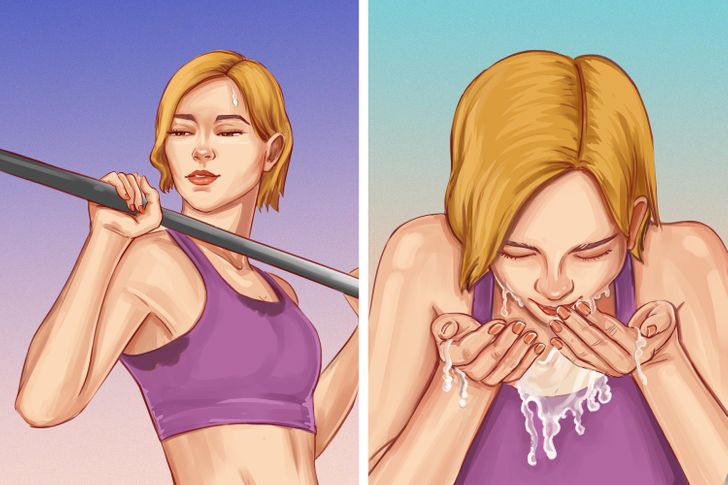
Whether or not you have acne, it’s important to keep your face clean. Normally, washing it twice a day is what’s recommended. Washing more often than that could actually cause more problems. How you wash your face matters too. Scrubbing the skin can irritate it and make acne breakouts worse, so it’s better to just use your hands and a special cleanser. Then, pat your skin dry with a clean towel.
- Tip: Since sweat sticks to your face and may contain acne-causing bacteria, it’s important to wash your face right after working out.
2. Keep your hair clean and away from your face.
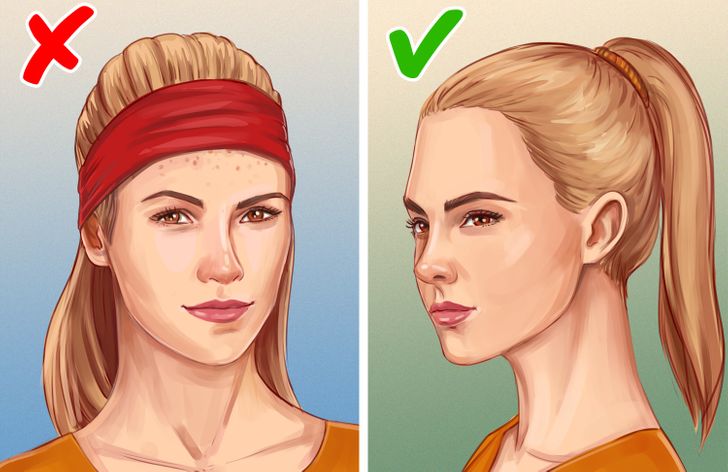
Excess oil traveling from the hair to the skin can worsen acne. Keeping your hair clean could stop acne from developing on the forehead and face. If you have oily hair, you may need to wash it more often than people who have dry hair. Always use a gentle shampoo and conditioner.
Tips:
- While keeping your hair off your face could help to prevent acne breakouts in that area, wearing headbands that cover your forehead can have the opposite effect because they keep sweat in place. If you have long hair, you can just keep it pulled away from your face.
- Refrain from getting products such as hair gel or spray on the face. They can clog pores and lead to breakouts. The same goes for fragrances, oils, and pomades.
3. Apply acne-specific treatments instead of popping pimples.
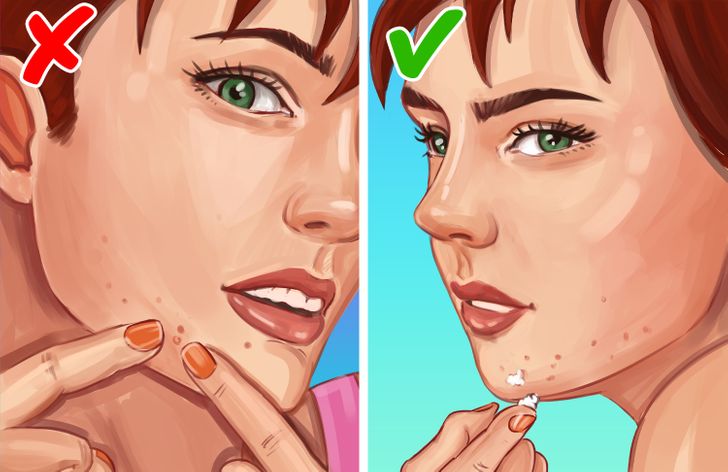
Avoid touching your face, especially if it’s to pick or pop your pimples. Instead, use topical or over-the-counter treatments, such as creams or serums, to reduce mild breakouts when they tend to occur in specific areas, like the chin, nose, or forehead. Always check with your dermatologist to find out what treatment can work best for you and how to apply it.
- Tip: Certain skincare products intended for use on dry or mature skin contain oil that can clog the pores, so stay away from these. Products that don’t contain oil are usually labeled “noncomedogenic.”
4. Keep an eye on your diet with a food diary.
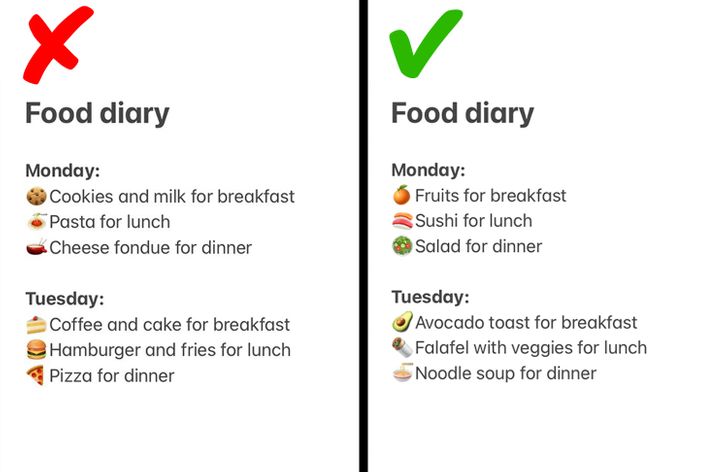
Doctors are not yet certain of the connection between food and acne, but eating a healthy diet is always a good idea, and it may also help your skin stay clearer. According to research, eating fewer foods that are high in sugar, such as cookies, cakes, pies, and other carbs, could help reduce breakouts. Dairy products, especially skim milk, could also increase a person’s risk of developing acne.
- Tip: Some foods may trigger acne in certain people. Keeping a food diary can be a good way to determine if a specific food triggers your breakouts, leading you to cut back on that particular food group to see if your skin improves.
5. Protect your skin from the sun.

The sun’s UV rays can increase inflammation and redness, among other things. If you get a sunburn, you could overproduce oils that make acne worse. On top of that, some acne medications may make your skin more sensitive to sunlight.
Tips:
- Limit your time in the sun, especially between the hours of 10 a.m. and 4 p.m.
- Wear protective clothing, such as a long-sleeved shirt, pants, and a broad-brimmed hat.
- Apply a broad-spectrum sunscreen (6% zinc oxide or higher and SPF 30 or higher are recommended) 20 minutes before you go outdoors.
- Look for “noncomedogenic” on the sunscreen label to make the appearance of new pimples less likely.
6. Reduce stress and exercise daily if possible.
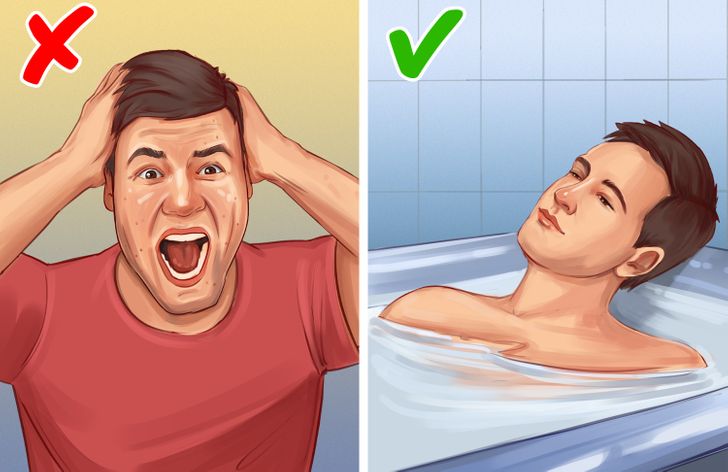
Stress often causes inflammation, which can make breakouts worse. Ask yourself what’s causing it and look for solutions in things like meditation, yoga, relaxing before bed by reading or taking a bath, spending time in nature, or engaging in hobbies.
- Tip: Regular exercise is a great option to reduce stress because it’s good for your whole body, and it could help you prevent acne as well.
Bonus: Why it’s important to wash your pillowcases along with other dos and don’ts to bear in mind
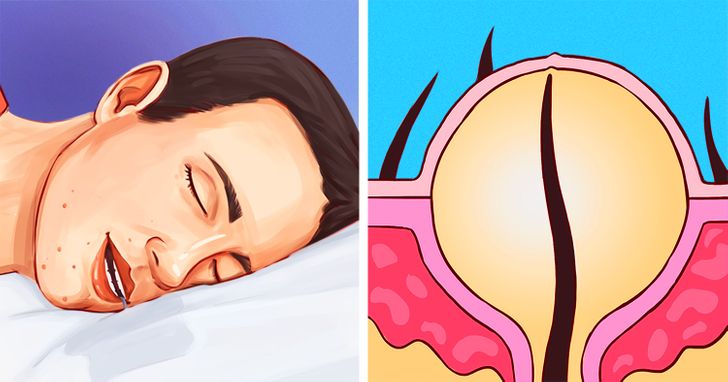
✅ Do change your sheets at least weekly. If dirt and oil are on your sheets, they will rub off on your skin while you sleep. This is especially important for your pillowcases because it’s where you rest your face.
⛔️Don’t sleep with your makeup on. Always remove your makeup before going to bed, even if you use noncomedogenic products.
✅ Do use a clean towel to gently pat sweat from your skin when working out, but never rub the sweat from your skin to avoid irritating it.
⛔️ Don’t wear clothing or use exercise equipment that rubs your skin or that may cause irritation when working out.
✅ Do keep your facial care accessories clean by washing them with soap and water. Also, for hygienic reasons, make sure you’re the only person who uses your makeup, makeup brushes, and makeup applicators.
⛔️ Don’t try a new acne treatment every week or so. Instead, use a product for 6 to 8 weeks and evaluate the results then. When changing products, keep in mind that the complete clearing of a previous product can generally take up to 3 to 4 months.
✅Do be careful when removing facial hair. Clean the blade regularly and shave in the direction of the hair growth. Waxing and threading could contribute to a breakout with acne and/or irritation.